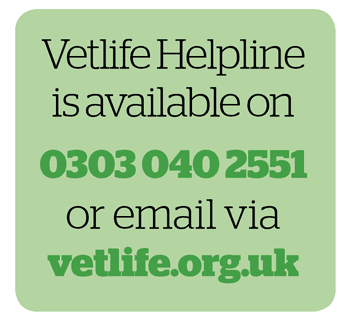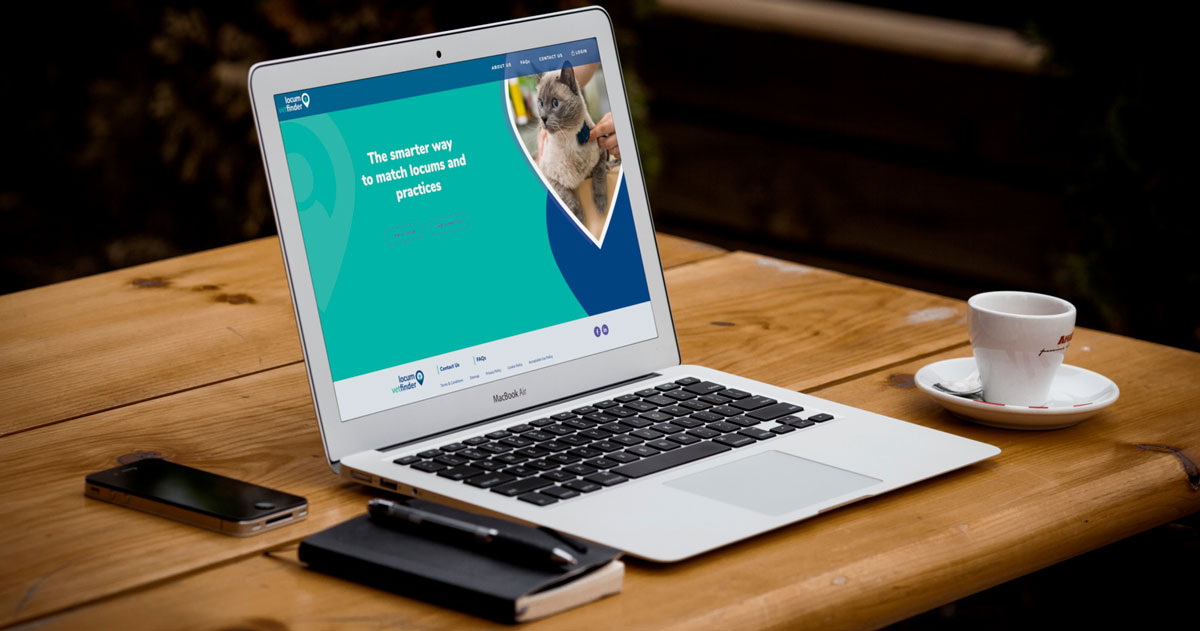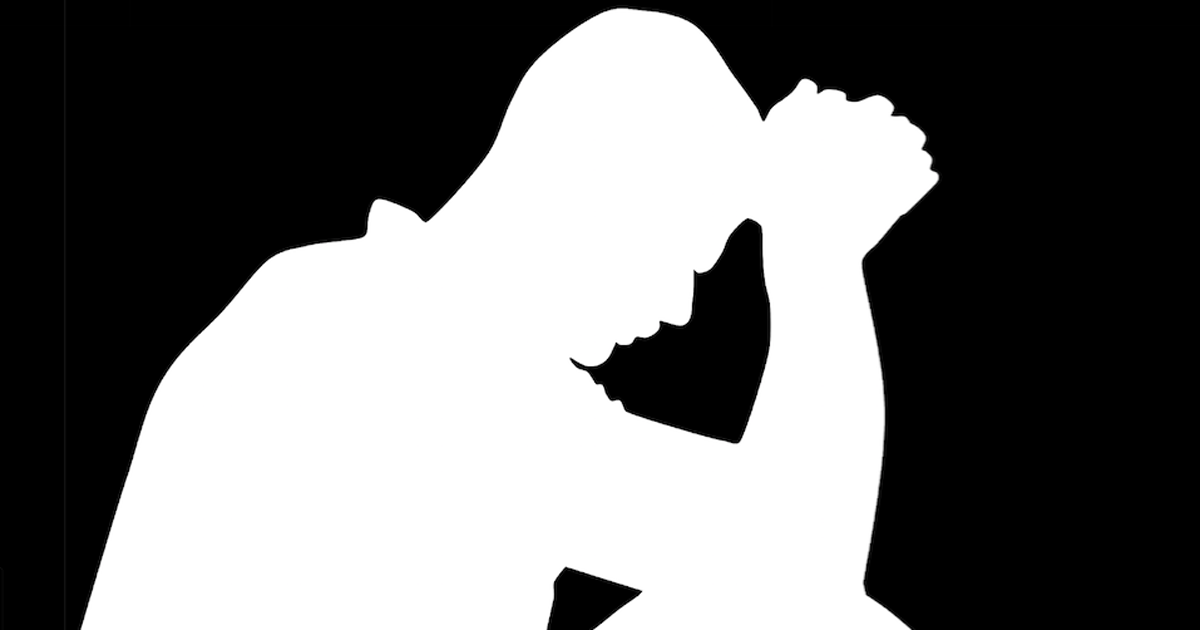This article is written for vets and non-vets – and perhaps both groups will get different things from it.
I would prefer not to be prescriptive about the lessons I think can be learned from it, but instead invite you to take from it whatever naturally occurs to you.
It is written with the benefit of five years’ self-analysis and memory degradation, which is perhaps why I am able to ascribe meaning to some of the raw emotion a vet or VN may feel if grief is in the present or more recent past, but also may explain why you find some of your own experiences are missing from this account.
It is also personal to me, and may not chime with other members of my profession, although, when I have used my experience to help close friends in the past, I believe it has helped them.
Sudden haemorrhage
Five years ago, my mum had a sudden brain haemorrhage and immediately became comatose. My dad telephoned me to say what had happened, and that medics were loading her into an air ambulance and taking her to hospital. I was at work, but was given immediate leave to go to the hospital.
I remember being numb for about five minutes, then starting to cry in the car on the drive there. I arrived a long time before the air ambulance as, unbeknown to me, the medics had taken an hour to stabilise my mum before they could take off. Eventually, I saw paramedics unload her on a trolley. They had covered her completely with a blanket, which I now realise was to shield her from the downdraught, but at the time I thought she was already dead.
They were also not running, but moving in a calm manner – which, of course, is the safest and most effective way to behave in an emergency, but it increased my worry. It was as I would have done when a dog or cat was carried into the surgery collapsed, but it was difficult, as a family member, to understand.
At that moment, I had a visceral experience of an outpouring of grief – something I would not experience again for three months. Once I had gone into the hospital, and been told my mum was being stabilised and wasn’t dead, I became calm and entered my professional mode.
Family communication
I barely cried over the three months of my mum’s treatment, but instead took on the role of communicating relevant history with the doctors and translating their communications back to my family. I had the support of my wife, who is also a vet, and sister, who is a midwife, but often was the only one able to attend.
Of course, I was giving emotional support to my family, too, but did so almost with sympathy rather than empathy; it was like I wasn’t being affected by the situation. I felt embarrassed when friends would offer me support or ask after my well-being, and usually deflected on to talking about dealing with the suffering of my family members in the situation.
In the veterinary profession, we suppress our own feelings so we can carry out tasks efficiently and care for patients. We do this to a greater or lesser extent, but all do it to some degree. This is not something unique to us – I’m sure doctors and nurses, other emergency services and military personnel also have to do this. This professionalism is sometimes misunderstood by the public, who confuse it with coldness.
Not so long ago, I was venomously accused of “not even liking dogs” by a client when I failed to react with drama to her dog squealing when it received its vaccination. In fact, since this all happened, I have found it much harder to suppress emotion. I have even cried at the emotional back stories on MasterChef, only stopping when tears turn to laughter as my wife affectionately takes the mickey out of me.
I tend not to cry at work, but often have that feeling of tears queueing up behind my eyes, and the worry I will not be able to hold them in when I am carrying out euthanasia – particularly if I have been treating the animal for a while, or have learned something about the owner’s life and personality.
Emotional awareness
Members of my generation are often called millennial snowflakes due to our emotional awareness and perceived lack of resilience.
My instinct is, as the world and society have become broadly less oppressive (it may not seem like it, but read Factfulness: Ten Reasons We’re Wrong About the World – and Why Things Are Better Than You Think by Hans Rosling), we have developed the freedom and confidence to question everything – as well as the tools, such as the internet, to do so. This has led to widespread discussions about feelings and an increased introspection by most individuals.
My own experience is with an increased understanding of self comes the freedom to allow one’s emotions be. Perhaps, at the moment, this self-awareness is leading to an increased incidence of mental health issues, or perhaps it may just be that in the past we were less aware of what people were going through. However, as our knowledge, understanding and mental health medications improve, the empowerment of people to think and talk about their feelings will lead to better outcomes.
I am sceptical we are heading into a mental health epidemic, as is widely reported. Perhaps we simply understand the importance of addressing mental health to a greater extent. To put it another way, perhaps a greater number of normal emotional states for human beings are being medicalised than in the past and, therefore, coming under the banner of mental health.
An element probably exists of mental health stakeholders unconsciously presenting an overly gloomy view of the future to secure investment. Whatever the true picture, no stigma should be attached to any mental health issue – the answer is not just to toughen up and suppress feelings.
Poorer prognosis
During the three months my mum spent in a coma, it became increasingly clear to me the prognosis was becoming poorer. The doctors were tactfully trying to convey this and seed the idea into conversations with my family, but, naturally, they focused on the more positive appraisals by the nurses looking after her, who were trying to give us comfort.
They were, in their kindness, telling my family about positive signs she exhibited. In one incident, the nurse held my mum’s hand to inject into the cannula on the back of it, and mum’s fingers curled slightly. However, I knew this was the natural reflex to pressure on the palm of the hand and meant nothing in terms of conscious muscle control.
Often, pet owners over-interpret positive signs in the overall picture of their health and we, as vets, often have to be the bad guys in conveying the true picture. I took on this professional responsibility with my own family in nipping their positive interpretations in the bud and giving them the true picture of mum’s health, as I saw it. While, overall, I felt this was the right thing to do, at times I doubted myself and worried I was being arrogant in extrapolating my veterinary knowledge into the field of human medicine.
In truth, few things are certainties in medicine, and vets have to do their best to consider the whole picture and give owners the ability to make informed decisions. Unfortunately, at times we are asked by the owners to give more than the facts, and offer opinions as to what the likely outcome may be – often without having been able, for one reason or another, to gather all the diagnostic information we may require.
Veterinary judgement
If our judgement results in a decision to euthanise, and no conclusive postmortem is carried out, the vet has to live with that decision without necessarily knowing if he or she was right.
This relationship with euthanasia became relevant to the story of my mum. When anaesthesia was reduced and she had moments of waking from the coma, she was in a vegetative state. She also had many other pre-existing health issues: severe OA, obesity, diabetes, depression and stress.
I was also aware she was in an intensive care bed and her care was costing more than £2,000 per night, with only limited resources available in the ward and the NHS on the whole.
I felt, perhaps, my mum was coming towards the end of her fair chance to show improvement and her continued care was denying someone with a better chance of recovery the care he or she may need. I did not tell my family members the decision they should make if we were to be offered the Liverpool Care Pathway (the next nearest thing to euthanasia in people), but did explain how I felt and the reasons behind my opinion, and I think I had some influence on my family’s collective decision to ask the doctors to take that route after three months.
One of my sisters had difficulty facing up to the decision when the rest of us had decided, and it was me who gently helped her reach the same decision as the rest of us. This weighed heavily on me – no certainty in the situation existed. Although several doctors had indicated the poor prognosis, one said he had once seen someone come out of a coma after two years and recover “some function”.
I felt it was pragmatic, even if I was wrong about my mum’s chances of eventual recovery, to allow her to rest in peace. Visiting her every day was taking its toll on my family and I didn’t want that to be drawn out for months or years, and affect their health and well-being.
Scientists… but humble
As scientists, we like facts and evidence, but we are also humble enough to acknowledge the small amount of uncertainty that almost always underlies any scientific knowledge. We have to rely on the best available evidence, and that is the right thing to do. However, when the consequence is the extinguishing of a human life, sticking to those scientific principles is emotionally tough.
When my mum’s ECG monitor flatlined 36 hours after starting the Liverpool Care Pathway, I had my second visceral outpour. I cried uncontrollably for 10 minutes, but not in sadness – in relief. My whole family and mum’s friend had been gathered around her bed for hours talking while her breathing was becoming heavier.
 The Liverpool Care Pathway is such a slow process in comparison to euthanasia and I believe that option has now been taken away from people, extending the end-of-life period for many patients. That night, we had a family meal and exchanged memories of my mum. I remember it as a really happy occasion.
The Liverpool Care Pathway is such a slow process in comparison to euthanasia and I believe that option has now been taken away from people, extending the end-of-life period for many patients. That night, we had a family meal and exchanged memories of my mum. I remember it as a really happy occasion.
Certain triggers would make me cry over the following 18 months or so and, for me, that was the real period of grieving. Once I could have no further influence on improving the situation, my own feelings became more prominent.
I got married five weeks after my mum’s passing, but became moderately depressed after that happy period. I regret the way I behaved moodily at home, but my wife was nothing but supportive of me during that time. Perhaps this was a side effect of having suppressed my feelings during the period of my mum’s illness.
When my wife’s mother was ill the following year, I don’t feel I supported her as well as I could have done, as I was still suffering from this grief hangover. However, despite the personal difficulty that was contributed to by my “veterinary approach” to the situation, I am still glad I approached it in this way.
Emotional intelligence
Vets and VNs are some of the most emotionally intelligent and strong people in society, and many of us may be able to deal with situations in a similar way. I feel, overall, I provided support to my family and that gave me a sense of purpose, despite the personal toll it took.
I hope my experiences will help inform the way the public interacts with the veterinary profession and help my fellow professionals better analyse their own role when they come up against difficult personal situations.
I hope they can use this to either decide to let themselves off the hook and put their professional skills to one side, or use their veterinary emotional skills to aid their family, as I tried to do, but with the additional understanding of the potential consequence of that approach.
Whichever approach you take, use your support network and look after your mind.



